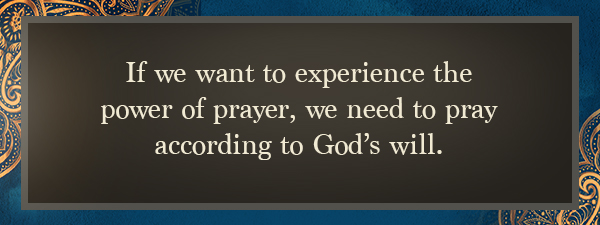Throughout history, God has raised up men and women to be world changers. Some people, like Daniel, make such an impact on society that they continue to be well known beyond their lifetime. Have you ever wondered what sets them apart? How does God select individuals for such important work?
Sometimes God appoints powerful people to serve Him, but He often chooses more unlikely candidates. The apostle Paul explains,
1 Corinthians 1:26-28, NLT
As a young man, Daniel held great promise, but by the time he received the Seventy-Weeks prophecy, everything had changed. He was an elderly hostage who had been subjugated by a succession of conquering regimes. Between the death of Daniel’s original captor, King Nebuchadnezzar, and Gabriel’s announcement of the Seventy-Weeks prophecy, at least five kings had ruled the land. While God granted him tremendous influence, he held no political power, personal wealth, or prestige.

Throughout this extended captivity, Daniel never wavered in his faith. As the years wore on, he must have wondered, Is this it? Why hasn’t God delivered my people? What is His plan for us? Many aspects of his situation were different from our own, but we often struggle with similar questions. In the verses leading up to the prophecy, Daniel reveals four empowering principles that will help us walk more closely with the Lord and expand our personal influence.

The first factor in God’s revelation of these vital and profound prophecies was a careful reading of God’s Word. In this case, it was the book of Jeremiah. One day Daniel was having his devotions, and he discovered something new. He clearly wasn’t skimming the text. He was studying it carefully, searching for a word from the Lord. The Scripture explains, “I, Daniel, understood by the books the number of the years specified by the word of the Lord through Jeremiah the prophet, that He would accomplish seventy years in the desolations of Jerusalem” (Daniel 9:2).
I believe he was reading the passage we know as Jeremiah 29:10: “After seventy years are completed at Babylon, I will visit you and perform My good word toward you, and cause you to return to this place.” Talk about precise! Jeremiah’s prophecy specified the length of time, the location, and the outcome of Israel’s captivity. By spending time in the Scriptures, Daniel realized his people would return home after seventy years, and most of that time had already passed. Almighty God used the written Word to communicate the plans He had for His people.
For Christians today, spending time in God’s Word is no less important than it was for Daniel. In his second letter to Timothy, the apostle Paul warns of a variety of dangers that will arise in the Last Days. His advice? Stay in the Word. He says,
All Scripture is given by inspiration of God, and is profitable for doctrine, for reproof, for correction, for instruction in righteousness, that the man of God may be complete, thoroughly equipped for every good work.
2 Timothy 3:1, 14-17

Having read and understood Jeremiah’s prophecy, Daniel dropped to his knees and began to pray. We might expect him to offer a celebratory prayer full of anticipation for the Lord’s deliverance, but what we find is quite different. According to verse 3, Daniel “set [his] face toward the Lord God to make request by prayer and supplications, with fasting, sackcloth, and ashes.” Rather than relying solely on God’s faithfulness to fulfill His promises, Daniel confessed the sins that prompted seventy years of righteous judgment. And he didn’t limit his petition to his own concerns—he pleaded with the Lord on behalf of every man, woman, and child in Israel.
After fourteen verses of repentance, Daniel concluded with this: “O Lord, hear! O Lord, forgive! O Lord, listen and act! Do not delay for Your own sake, my God, for Your city and Your people are called by Your name” (Daniel 9:19). If we want to experience the power of prayer, like Daniel, we need to pray according to God’s will. Daniel read the prophecy. He believed it. He prayed it. He confessed his people’s sins. And he entreated God to do what He said He was going to do.

Too often we skip to that last part. Knowing God is good and in control, we neglect to read His Word. When trouble arises, we pray for what we need based on our own understanding of the situation, and we miss the opportunity to see things from His eyes. As we watch our culture slip into deeper immorality, we tend to point fingers rather than pleading for mercy. In our eagerness to receive the blessings of God’s goodness, we forego the potent benefits that accompany obedience.

Before Daniel even finished his prayer, God sent the angel Gabriel with a reply—and a compliment. He said,
Daniel 9:22-23, emphasis added
Answered prayer is more than a privilege for select believers like Daniel. It is God’s promise to every one of His children. According to 1 John 5:14-15, “This is the confidence that we have in Him, that if we ask anything according to His will, He hears us. And if we know that He hears us, whatever we ask, we know that we have the petitions that we have asked of Him.” The Bible says God will answer any prayer that is asked “according to His will.” If He does not seem to be answering our prayers, it’s not because of any defect in His character. The problem may be our motives, or our request may cause unintended harm if it were answered. By rooting our prayers in God’s Word, we can be sure of His response.
Daniel’s exceptional obedience to God brought him the designation of being “greatly beloved” and the unique privilege of bearing prophetic revelation. It is significant that he shares both distinctions with the apostle John—the writer of Revelation. Because of their radical obedience, God blessed these two men with His favor and His prophetic word.
God’s Word is now complete, so He won’t call you or me to record any new revelations. But if we are faithful to study our Bible and pray earnestly, we will receive His favor along with important work to do. In the Parable of the Talents, Jesus taught His disciples that faithful workers in the kingdom of heaven can expect to hear their Master say, “Well done, good and faithful servant; you have been faithful over a few things, I will make you ruler over many things. Enter into the joy of your lord” (Matthew 25:21, 23).

Because of God’s prophetic message, Daniel no longer had to wonder about the future of his people. The Babylonian captivity was nearly over. Jerusalem and the temple would be rebuilt, and the Messiah would come. After that, Israel would experience a time of terrible Tribulation, but even that would be limited to a prescribed number of days. This prophecy gave Daniel hope that God wasn’t finished with Israel, and it holds hope for God’s people right up to the end of days.

Considering the time involved, Daniel knew he wouldn’t be around to explain things as they happened. The details had to be recorded carefully for the benefit of future generations, and that is exactly what he did. Even now, as world conditions worsen, Daniel’s prophecies provide strong assurance that God is fully in control of these uncertain times. The accuracy of his fulfilled prophecies bears witness to the precision of his remaining predictions about the Tribulation and the Antichrist (Daniel 9:26-27). If we want to understand the sequence of events that will occur before Christ returns, we can trust Daniel’s Seventy-Weeks prophecy.

Do you want to exert influence in your community and the world around you? The qualifications can be boiled down to one simple question: Are you someone God can trust with His message?

This prophecy should make us anxious to ensure that nobody we know experiences the Tribulation or misses out on heaven. The prophesied Messiah has come, just as Daniel said He would. “For God so loved the world that He gave His only begotten Son, that whoever believes in Him should not perish but have everlasting life” (John 3:16). This is our message of hope to share with the world. While there is no harm in dicing prophetic nuances, sharing the Gospel is far more important.
When Daniel arrived in Babylon as a slave, he couldn’t have imagined the events that lay ahead of him—serving in the courts of a half-dozen foreign kings, risking the death penalty for practicing his faith, interpreting dreams and visions, purveying prophetic wisdom. Seventy years of his life were consumed by political upheaval and turmoil, but he embodied the power of an uncompromised life through it all.
Most of us never find ourselves in such extreme circumstances. We wake up each morning in ordinary homes, work at ordinary jobs, and live ordinary lives. Yet each of us has the power to change our world one devotional at a time, one prayer at a time, one conversation at a time. God is looking for people who will respond to His call like Daniel did, and like Isaiah before him, with willing obedience. Whatever He invites us to do, our greatest qualification is a heart that says, “Here am I! Send me” (Isaiah 6:8).
For deeper study of Revelation and prophecy, visit Dr. Jeremiah's Prophecy Academy where you will find a panorama of prophetic materials to enhance your understanding of God's Plan for the end of the world.
Continue your study of biblical prophecy with these other popular articles by David Jeremiah:
Seven Churches of Revelation Bible Study
Becoming a Cashless Society—A Financial Sign of the End Times
What Is the Tribulation?
Why Would Anyone Accept the Mark of the Beast?
What is the Great White Throne Judgment in Revelation?
The False Prophet in the Book of Revelation
11 Answers to Questions About the End Times
What Is the Rapture?
What Is the Millennium? 7 Answers to 7 Questions
4 Signs of the End Times
the 144,000 in the Book of Revelation
The Revelation Prophecy Timeline
See all prophecy articles here >

